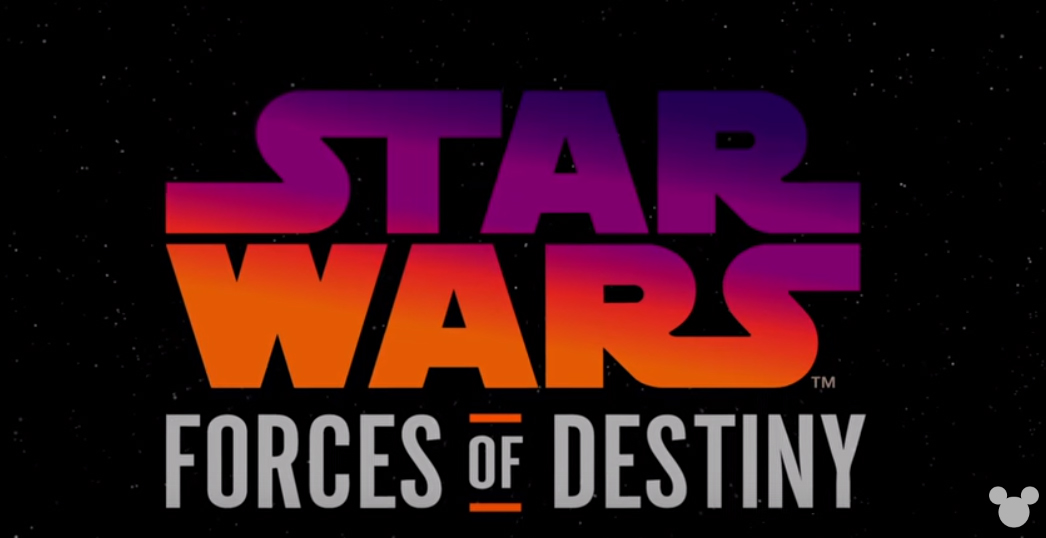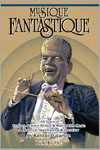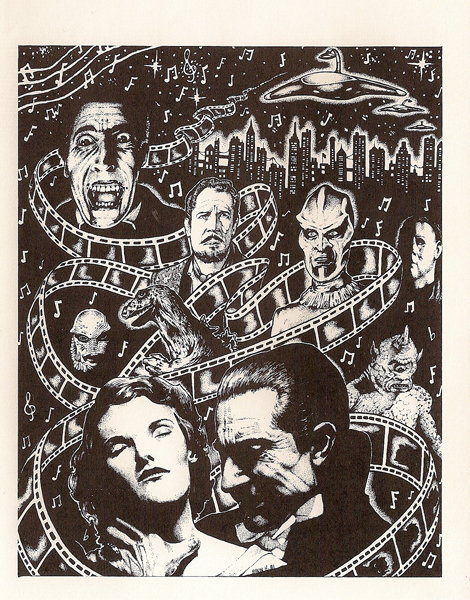Scoring STAR WARS: FORCES OF DESTINY
Interview by Randall D. Larson/musiquefantastique.com
Posted August 1, 2017.
“There are wonderful nuances in the storytelling. The series is designed to point out every day actions and experiences that these characters have, and it’s these moments – they’re large moments and small moments – that define who the characters are.” – Ryan Shore
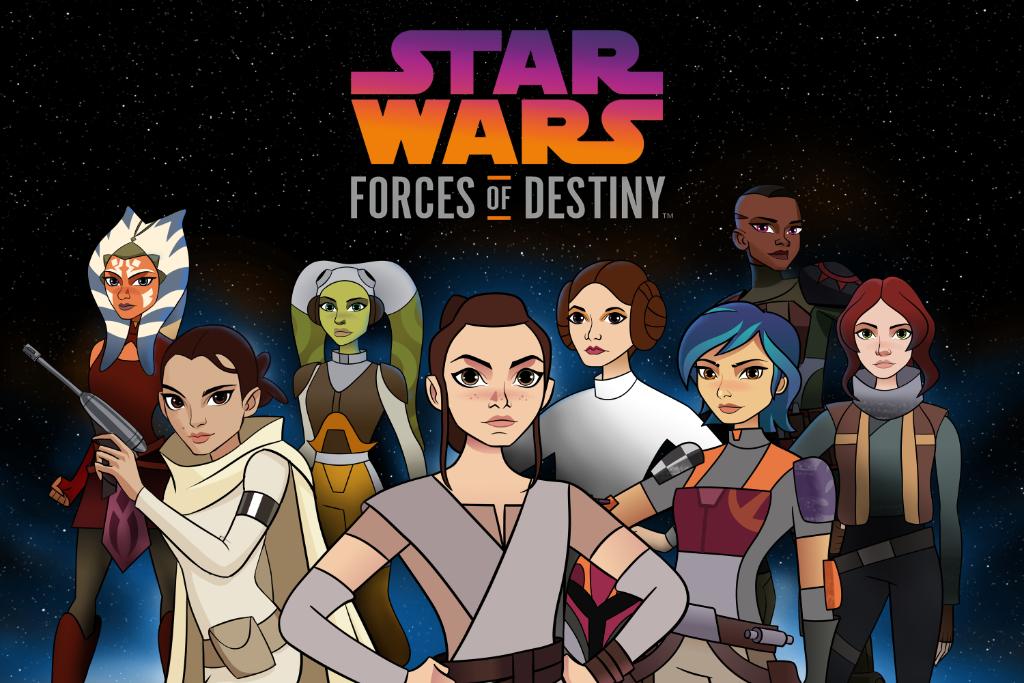
Grammy and Emmy award-nominated composer Ryan Shore (STAN HELSING, CABIN FEVER 2, R.L. STINE’S MONSTERVILLE: CABINET OF SOULS, Disney’s PENN ZERO: PART-TIME HERO) expands his travels through Disney’s sci-fi universe with the web series STAR WARS: FORCES OF DESTINY. The show is an original series of animated shorts which explore the untold stories that helped shape the destinies of Rey, Jyn Erso, Princess Leia, Sabine Wren, Padmè Amidala, Ahsoka Tano and other female characters of the STAR WARS Universe. The first three episodes are now available on Disney’s YouTube channel. “I’m so grateful to Lucasfilm for bringing me on board, and collaborating with them on these tremendous stories featuring the female heroines of STAR WARS!” Shore said. “One of the biggest musical challenges for STAR WARS: FORCES OF DESTINY has been finding a unique way of honoring John Williams’s indelible musical language from the trilogy of trilogies – among the most revered scores and collection of themes of all time – while at the same time penning from my own musical vocabulary.”
I spoke to Ryan Shore last week about the challenges and rewards of scoring the show. – rdl

Q: You began scoring for Disney with PENN ZERO: PART-TIME HERO. Was it your work on that series that sold your abilities to score the STAR WARS web series?
Ryan Shore: Good question. No, the STAR WARS opportunity actually did not come through my work on PENN ZERO; it came through the company that’s doing the animation for the show, Ghostbot. They’re good friends of mine and we’ve worked together before. They had signed on to do the animation for the series and they recommended me for doing the music, so I auditioned to do it and then Lucasfilm asked me to score it.
Q: Since this is an official Lucasfilm series for Disney, you’ve been able to utilize John Williams’s themes in your scores. How special has that been for you?
Ryan Shore: It’s been amazing! I get to use John’s actual themes, especially because this series is all about bringing a number of different characters that already exist, and each one of them has their own existing theme from prior films. It’s been an amazing opportunity to get to work with his music, because I already know this music really well. As a matter of fact just last January I conducted about 20-25 minutes of STAR WARS: THE FORCE AWAKENS in concert with the Winnipeg Symphony Orchestra. So I’m very familiar with the STAR WARS music, but now to be able to actually use it in a score… it’s surreal and it’s a dream come true!
Q: What kind of brief did you get from Lucasfilm as far as the music they wanted for the series?
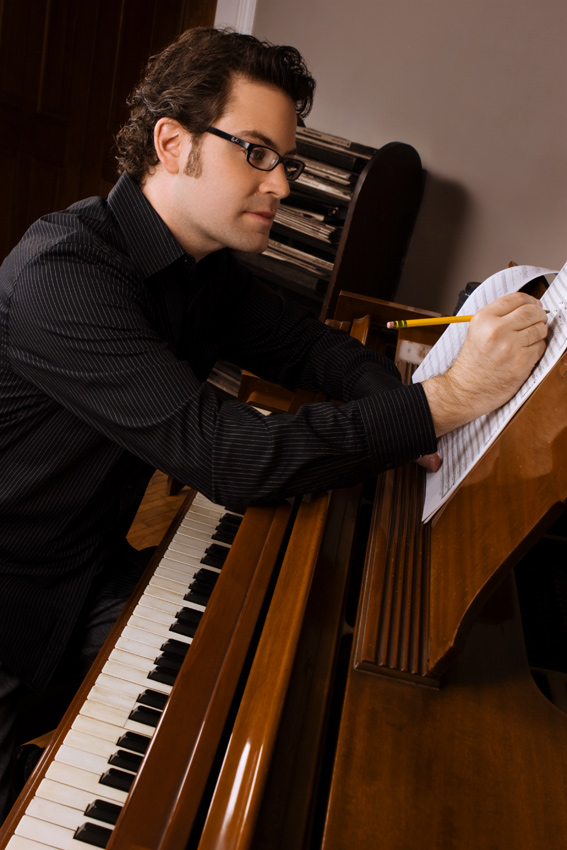
Ryan Shore: We spot the episode and talk about the characters; we talk about what’s happening in each of these episodes, and then I go and compose. When I’m doing that I’m certainly thinking about the sound of STAR WARS, thinking about this incredible musical vocabulary that John Williams has established for the entire STAR WARS canon. When we’ve spotted the episodes we mostly talked about what the stories are about and what the characters are about. There hasn’t been a lot of discussion about “make it sound like Williams” or “don’t sound like Williams.” I’ve just been going with my approach, which is to make it sound like it’s a part of the full canon that John Williams has done, and at the same time try and bring my own musical voice to the composing. That’s been the approach – it‘s been very orchestral, very much of the sound of the STAR WARS films.
Q: Was George Lucas involved in the use of the music on this series, or who have you primarily worked with to make sure themes were used appropriately?
Ryan Shore: I haven’t met George in connection with this project, so I couldn’t speak to his level of involvement. I work directly with Dave Filoni, our Executive Producer, and Dave is fantastically knowledgeable about the entire Star Wars universe. He’s beyond brilliant in providing direction for where the music themes would be best heard and also for how they can be used most appropriately in our storytelling.
Q: What was your process of merging or integrating the familiar SW themes with your own original material – or vice versa?
Ryan Shore: I usually will quote John’s themes when we first see a character, in order to identify that character with a theme, and sometimes at the end of an episode where the character has achieved their mission and it’s a good time to recall their theme. Those are the main times that I’ve used it, but there have been other times that I’ve quoted his themes throughout the episode wherever it feels appropriate. We’re very careful about where we use those themes, and to make sure that they’re always used appropriately, at the right time. It’s something that we’re all very sensitive about because John’s themes are iconic and they’re incredible well-known, and I know it’s very important to Lucasfilm that the themes are used correctly and not overused – and I don’t lean on them too much just because they sound great. Dave Filoni really wants them to be used in a way that helps tell the story and doesn’t overly rely on “here’s this theme, now isn’t it great?” We try and use them tastefully.
Q: The series’ focus on dramatizing vignettes about the female characters of the STAR WARS Universe is a refreshing change in the heroic dynamic. How have you treated these characters as far as giving them a musical gravitas to fit their characterizations in the show?
Ryan Shore: The themes themselves, of course, are well established, so there you have the melodies and the harmonic tonalities associated with each character, but finding how those themes will work here is entirely dictated by what’s happening within each scene. We may be familiar with hearing a character’s theme in a certain type of setting from how we’ve heard it in the past, and that might be a sensitive setting or a vulnerable setting or an incredibly powerful setting –it’s really informative for me to know what the character has done before and what the theme has done before. Ultimately, of course, all these episodes are scored in the moment, for what those characters are doing in our story. So I start by knowing the melodies, the chord progressions, the vocabulary that surrounds all of that, and the instruments that are used, but that’s really to inform me. Once we do the scene it all comes from whatever that character is doing at that moment. Sometimes I’m giving very new treatments to themes that wouldn’t have been heard like that in a prior version.
Q: Have you composed any themes of your own for this show?
Ryan Shore: I have! That was actually the very first thing they asked me to do, was to compose the main theme for the series. It can be heard over the opening title card where you’ll see the STAR WARS logo across the star field. That’s an original theme and that was the very first thing I wrote when I began the series.
Q: What was your creative process as far as coming up with an original theme that was your own and yet could be interconnected to the other themes that would be brought in to accompany the character(s) that figured in the episodes?
Ryan Shore: The first thing I was thinking about specifically, with that theme, was what the overall series is about. There are certain themes that I think we all probably know really well, like Princess Leia’s theme and I’m sure many others for familiar characters in the canon, but we used Leia’s theme as an inspiration in that we wanted to have that feminine quality to the character, and if you recall Leia’s theme it has these wide intervals, which can be interpreted to have a certain femininity to them, sort of a sensitivity, but at the same time it’s very important in this series that these are strong characters. They are centered and grounded forces themselves to be reckoned with, and so that was the challenge of finding that initial theme was how to bring some femininity to it and at the same time show that these are exciting, new adventures, and that these are powerful female characters That’s exactly what was going through my mind when I wrote the theme.
Q: In addition to using John Williams’s themes, you’ve also used character themes that were composed Kevin Kiner for the animated CLONE WARS series: Ahsoka Tano and Sabine Wren. I understand Jyn Erso from ROGUE ONE will figure in a forthcoming episode, and Michael Giacchino wrote her theme…
Ryan Shore: So far to date I’ve worked with the themes for Rey, Princess Leia, the Force, Yoda, Sabine, Ewoks, and Ahsoka. All of the themes have been perfect for the moments I’ve needed to present them within the score, and so they’ve all been within the proper universe. I’ve only needed to focus on which moments to use them, and how to dovetail them into the vocabulary of the music score.
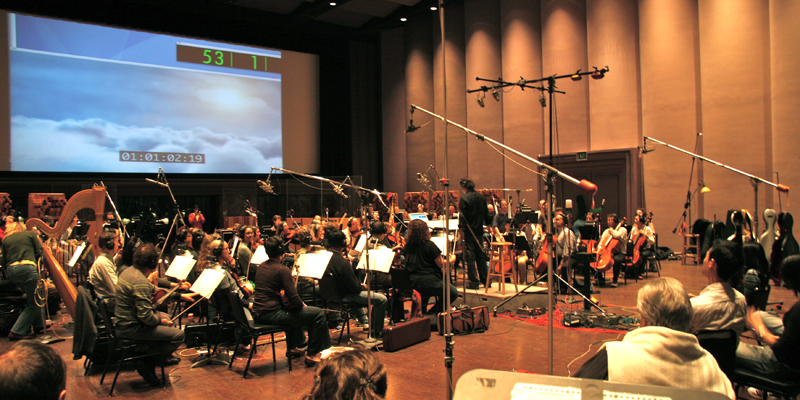
Q: How has the short length of the episodes structured your composition? What’s been your process of developing a nuanced score within a two-to-three minute running time?
Ryan Shore: When we originally started talking about the series, in a kind of abstract way, before I began scoring, we talked about the music not being used constantly, that we’d use it for specific moments and the music would start and stop. Once we actually got into spotting them, however, the episodes wound up having music pretty much music from beginning to end. So even though they’re short stories, they’re actually wonderful palettes for writing music, because I’m not limited to just composing a piece that lasts 30 seconds and then is out. I can really think about writing one piece of music that captures all of the different feelings within a three-minute story. So that’s how I’ve gone about doing it, and this might sound obvious in a way, but I follow the story. Everything comes from the story, and there are wonderful nuances in the storytelling. The series is designed to point out every day actions and experiences that these characters have, and it’s these moments – they’re large moments and small moments – that define who the characters are. And within that, there are all these character nuances, so they get a lot of action and drama and narrative storytelling even within a very short three-minute sequence. It’s a wonderful palette to compose for and I never come up short for ideas, so there’s so much to do, musically, and so much to say with the story.
Q: How are you dealing with the villains of these vignettes?
Ryan Shore: It depends on who the villain is – and there’s a wonderful variety of villains throughout the series. We have aliens that come in and there are stormtroopers and all different types of antagonists. When it’s appropriate, if there’s a theme that might be associated with one of them then I’ll go ahead and use that, or if it’s not quoting a theme it might be just finding the musical palette that’s used around those types of characters within the film, and then I’m writing my own music that paints with the same brush.
Q: One of the cool things, I’d imagine, about scoring this is that you have the entire STAR WARS canon as your palette – in the series we’re seeing characters from the original trilogy, the prequel trilogy, and now the sequel trilogy and standalone films and the animated spin-offs. There’s a large universe of music to explore in all of this.
Ryan Shore: A huge palette! One of the things I’m finding that’s so great about scoring this series is exactly that. It’s a very unique type of series in that you do have all these characters that are all from different time periods and worlds within the STAR WARS Universe, and to be able to showcase them altogether. Not only is that a very unique and inspiring environment to be able to write for, because it’s something we haven’t seen before, but also, as you’re mentioning, all these characters have very rich backgrounds, and themes that exist and stories that they’re already been a part of, and those are all the things I’m thinking about as we’re bringing all these characters together.
Q: Is this a digitally-based orchestra or are there opportunities for live instruments as well?
Ryan Shore: Primarily its digital; I’m doing everything in my studio with samples.
Q: How much time to you have to score each episode?
Ryan Shore: Typically we’re spotting them in groups of episodes, and then I’m given maybe a handful of weeks in order to do about 20 minutes of music. For me that’s a very comfortable schedule.
Q: What’s been most challenging about scoring this series?
Ryan Shore: [chuckles] Trying not to think about the fact that it’s for STAR WARS! I try and keep my head in the storytelling. I’m well aware that this is all part of a much larger canon, the history of these characters and the history of STAR WARS, and it can be overwhelming just to think about that. It’s incredibly humbling, and it’s incredibly exciting to be able to write music that is part of the STAR WARS canon. I grew up watching STAR WARS, I saw them all in the theaters, and I’m not only a composer but I’m a fan, so I would say probably the most challenging part has been trying to, in a way, not think about that as much, and just think about the storytelling and what the music should be doing.
Watch the STAR WARS: FORCES OF DESTINY web series on the Disney YouTube page
See also my 2016 interview with Ryan Shore about his horror and fantasy film scores:
/the-darker-shore-of-film-music/
For more information about Ryan Shore, see his official web site here
